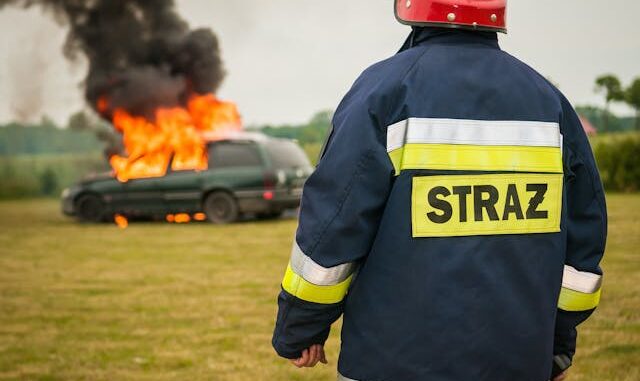
Ontario Car Accidents: When to Call the Police and What to Say – A Guide for Drivers
Being involved in a car accident can be a jarring experience. Knowing when and how to involve the police can be crucial for your safety, legal protection, and insurance claims. This article will guide you through the process of dealing with police after a car accident in Ontario.
When Should You Call the Police After an Accident?
In Ontario, you are legally required to report an accident to the police if:
- Injuries: If anyone involved in the accident is injured, even if the injuries seem minor.
- Fatalities: If there is a death resulting from the accident.
- Property Damage: If the total damage to all vehicles or property appears to be over $2,000.
- Hit and Run: If the other driver leaves the scene without exchanging information.
- Impaired or Unlicensed Driver: If you suspect the other driver is impaired by alcohol or drugs or is unlicensed.
- Criminal Activity: If you suspect the accident was caused by a crime, such as a stolen vehicle or road rage incident.
Even if the accident doesn’t meet the above criteria, calling the police is still a good idea if:
- You’re unsure about the extent of damage or injuries.
- The other driver is being uncooperative or aggressive.
- You want an official record of the accident for insurance purposes.
Should You Wait for the Police to Arrive?
If you’ve called the police, it’s generally best to wait for them to arrive, especially if there are injuries or significant damage. Leaving the scene before the police arrive can be considered a hit and run, which is a serious offense.
While waiting for the police, you can:
- Exchange information with the other driver(s): Get their name, contact information, license plate number, insurance company, and policy number.
- Take photos or videos of the scene: Document the damage to all vehicles involved, the position of the vehicles, and any relevant road conditions.
- Gather witness information: Get the names and contact information of any witnesses.
- Stay calm and avoid arguments: Don’t admit fault or discuss the details of the accident with the other driver.
What Should You Tell the Police?
When the police arrive, be prepared to provide:
- Your driver’s license, registration, and insurance information.
- An accurate account of what happened: Stick to the facts and avoid speculation or blame.
- Contact information for any witnesses.
- Information about any injuries or damage.
What to Expect from the Police
The police will:
- Assess the scene and gather evidence.
- Interview the drivers and witnesses.
- May issue tickets if any traffic laws were violated.
- Prepare an accident report: This report can be useful for your insurance claim.
Key Takeaways
- Call the police if the accident involves injuries, fatalities, significant damage, or other specific circumstances.
- Wait for the police to arrive if possible.
- Exchange information with the other driver and gather witness information.
- Provide the police with accurate information about the accident.
Additional Tips:
- Stay calm and cooperate with the police.
- Avoid discussing fault with the other driver or witnesses.
- Obtain a copy of the police report for your insurance company.
- Seek medical attention if you have any injuries, even if they seem minor.
